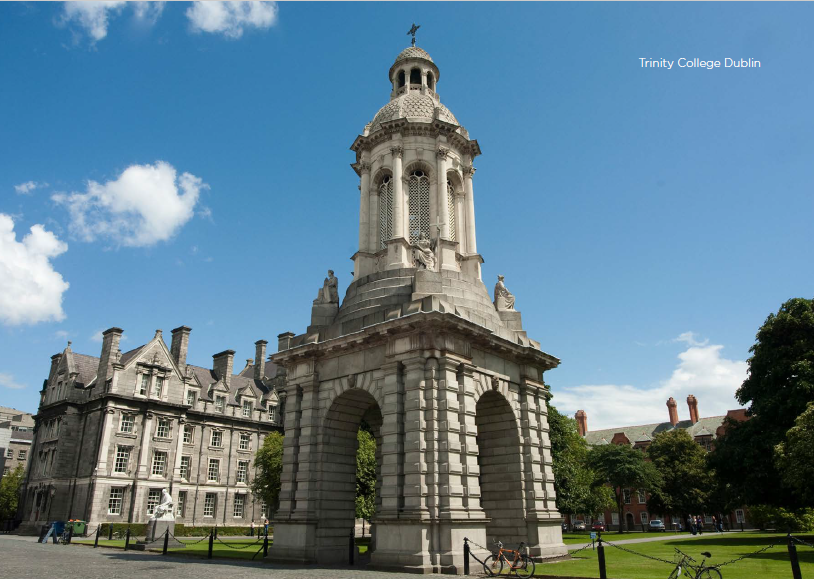|
As Brexit finally sends the UK and EU in separate directions, nationals of both entities find themselves in a peculiar position; EU nationals residing in the UK must now apply for settlement, while UK citizens residing throughout the EU must follow suit and obtain resident permits one way or another. Except, of course, the Irish. The citizens of the only English-speaking EU country, which enjoys unique ties with both the UK and the EU, find themselves in an enviable position, as they can roam both the areas visa-free under the Common Travel Area (CTA) agreement. The Common Travel Area and the right to reside in the UK The CTA is an agreement between Ireland and the UK which provides citizens of both nations with unparalleled rights such as the right to work, study, vote in certain elections, access social welfare benefits and health services, and, the right to travel freely between the two countries. In May 2019, both the Irish and UK governments reaffirmed their continued commitment to maintaining the CTA and the associated rights under all circumstances. The signing of the Memorandum of Understanding (MoU) by both governments ensures the special status will continue even after free movement ends on the 31st of December 2020. Under the CTA’s umbrella, Irish citizens do not require a visa or any form of residence or employment permit to enter or remain in the UK. Irish citizens wishing to continue residing in the UK are not required to apply for the EU Settlement Scheme; as under the CTA, they have the right to live, work, and access public services in the UK. Ireland’s EU status post-Brexit Ireland remains a vital member of the union and continues to benefit from an EU membership’s economic and political stability. As EU citizens, Irish nationals may continue to live and work freely in any EU Member State. Irish citizens continue to enjoy other privileges like access to the European Health Insurance Car providing them health care while traveling throughout the EU. For students belonging to Irish institutions, they have access to Erasmus+ and the right to study in the EU. Other perks for Irish nationals include waived mobile phone roaming charges when traveling within the EU. Qualifying for the Irish IIP Program Investors interested in the Irish IIP may choose from four different investment options; all providing a pathway towards Irish residence, and eventually, citizenship. These options are: 1 – Enterprise Investment: A minimum investment of €1 million towards an Irish enterprise, held for no less than three years. 2 – Endowment: A philanthropic donation at the sum of €500,000 areas of public interests of Ireland such as arts, sports, health, culture, or education. 3 – Real Estate Investment Trusts (REIT): A minimum investment of €2 million towards an Irish REIT listed on the Irish Stock Exchange to be held for at least three years is required. 4 – Investment Fund: Similar to the Enterprise Investment option, a €1 million investment in an approved fund for a period of at least three years, such funds must be regulated and approved by the Central Bank. This diversity provides investors with more options so they can choose what suits them best. The most popular option by far, however, is the enterprise investment, with little surprise there as it offers a safe venture, simple exit strategy, and a nifty ROI. In the time between 2015 -2019, a whopping 77.2% of all applicants chose the enterprise investment option, followed by the endowment option at 12.2%. The reasons the enterprise investment option dominates the IIP landscape are quite clear, in addition to the safety and profitability it provides, the enterprise investment option is a clear cut pathway to meet the preferences of the Irish government; as the government has highlighted preferred areas of investments such as nursing homes, social housing projects, and primary care centers. Those who invest in the fixed asset sector in these areas are not only perfectly positioned to gain approval but are safeguarding their investments as well. This risk-averse route means that the ultimate total cost of the program comes down to zero Euros, literally. The Irish IIP versus Golden Visa options in Europe Compared to other Golden Visa Programs in Europe, the Irish IIP program outshines its peers. The Irish IIP’s investment options are a great example of this, especially when investing in enterprises, as the holding period of 3 years is low compared to other European investment migration options (Greece for example requires an indefinite holding period), while the exit strategy is simple and straightforward, no need to hassle yourself with liquidating your investment; you just simply get your money back. Not only is it simple and safe, but you can make a good ROI when choosing a strong investment option, much like the ones we offer at Prime Land Ventures. Both of our Endowment projects and our Social Housing projects are safe investments that derive income from the Irish state, 100% repayment guaranteed. In terms of the country itself, Ireland enjoys one of the lowest corporate tax rates at 12.5% while Malta, Spain, Portugal, and Greece command a much higher tax rate at 35, 25, 21, and 24% respectively; for entrepreneurs and investors alike, this makes the Irish IIP program a desirable proposition. IIP best option post-Brexit
There are many advantages to the Irish IIP in comparison with Golden Visa Programs in Europe. The ability for Irish citizens to freely travel, reside, and study in both the UK and EU post-Brexit however, makes the program stand out among its European counterparts. Ireland’s competitive corporate tax rate and the IIP’s enterprise investment pathway provide business investors with an added incentive from both a professional and financial perspective. If you have more questions about the Ireland IIP Program or would like to speak further, please do not hesitate to call +41 44 586 73 10 or email sales@primelandventures.co
0 Comments
Leave a Reply. |
Archives
March 2021
Categories |
We Would Love to Have You Visit Soon!
Hours
M-F:
7am - 9pm |
Email
sales@primelandventures.co
|
Locations
|
© Prime Land Ventures 2022




 RSS Feed
RSS Feed